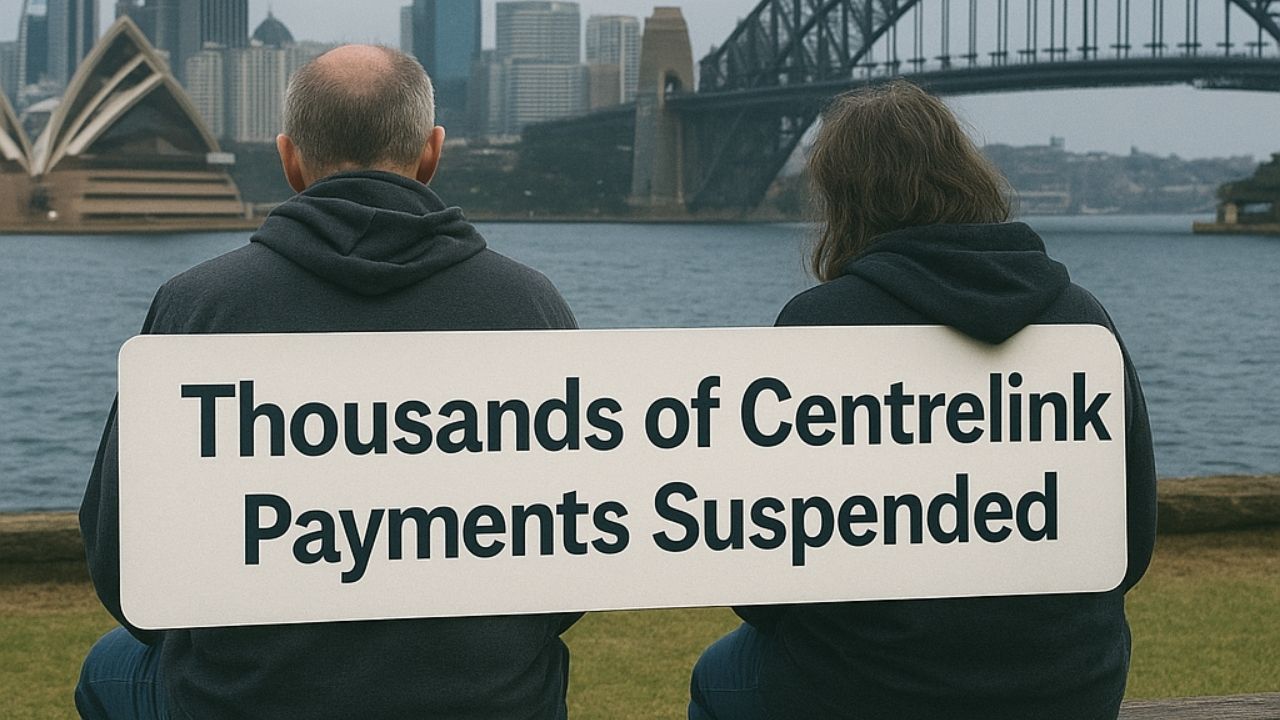In a coordinated national compliance initiative, the Australian government has suspended thousands of Centrelink payments effective May 20, 2025. The enforcement, carried out by Services Australia, aims to tighten accountability in the welfare system following a comprehensive review of beneficiary records. The majority of suspensions are linked to unverified personal details, missed reporting obligations, and incomplete documentation.
This effort follows a system-wide review involving automated data matching and manual auditing, focusing on inconsistencies between recipient declarations and verified third-party data. Although not all affected individuals are suspected of fraud, the suspensions serve as a prompt for recipients to update their records and comply with verification protocols.
Services Australia has stressed that the suspended payments will not be restored until the required verification steps are completed. Notifications have already been issued via MyGov messages and SMS alerts, directing individuals to address outstanding compliance issues.
Data Discrepancies Behind the Suspension Wave

The latest compliance activity revealed multiple patterns of data mismatch or failure to meet statutory obligations. This included people who failed to report changes in income, left their residential information outdated, or did not attend scheduled job-seeking activities required under their payment agreements.
Automated alerts were sent to recipients weeks before the suspension date, urging them to act. Many cases, however, remained unresolved. Centrelink has now paused payments for those flagged accounts until updated documents are submitted and verified.
The suspensions are not confined to one specific age group, region, or payment type, indicating that systemic gaps exist in how information is updated and verified within the program’s user base.
National Reach: Suspensions by State and Issue
The reach of the suspensions is broad, with every state and territory affected. The reasons behind payment halts vary by region based on the most common compliance failures reported.
| State/Territory | Number of Suspensions | Most Common Issues |
|---|---|---|
| New South Wales | 140,000+ | Unverified ID, missing income reports |
| Victoria | 120,000+ | Address mismatch, overdue document submission |
| Queensland | 95,000+ | Missed appointments, job plan non-compliance |
| Western Australia | 60,000+ | Incomplete contact info, unreported income |
| South Australia | 50,000+ | Medical report expiry, outdated payment records |
| Tasmania | 25,000+ | Rent document issues, training record lapses |
| ACT | 12,000+ | ID updates pending, digital errors |
| Northern Territory | 10,000+ | Communication failure, enrolment verification delay |
This distribution emphasizes the scale of the administrative challenge and the need for individuals to take action across the country.
Categories of Payments Impacted
Centrelink’s enforcement has extended across nearly all major support categories. The goal is to ensure that only qualified and compliant individuals continue receiving assistance.
| Payment Type | Affected Groups | Key Verification Requirement |
|---|---|---|
| JobSeeker Payment | Unemployed individuals | Job diaries, income declaration |
| Parenting Payment | Single and partnered parents | Proof of dependents, updated income |
| Youth Allowance | Students, job seekers under 24 | Education enrolment, earnings verification |
| Disability Support | Individuals with long-term medical conditions | Valid medical records, address confirmation |
| Age Pension | Seniors above retirement age | Proof of residency, identity documents |
| Carer Payment | Primary carers of eligible persons | Valid care-recipient certification |
The impact is far-reaching and illustrates the importance of routine updates and ongoing communication between recipients and Centrelink.
Immediate Steps to Regain Access to Payments
Those whose payments were suspended must take action promptly to avoid longer-term cancellation. The process begins by accessing the MyGov portal and following any action items listed under Centrelink.
- Log in to MyGov and navigate to Centrelink messages and tasks
- Read notification letters carefully to understand the suspension reason
- Update personal details, including address and contact number
- Reschedule missed interviews or activity appointments
- Upload rthe equested documents clearly and in full
Timeliness is crucial. Individuals who fail to respond within the expected timeframe may risk being removed from the payment program entirely.
Required Documents Based on Payment and Situation
Every suspended account has unique requirements, but some documents are commonly needed to process reinstatements. They must be valid, legible, and submitted in full to avoid rejections or delays.
- Proof of Identity – Driver’s licence, Medicare card, passport
- Job Activity Records – Job search diaries, interviews attended
- Income Reports – Payslips, employer declarations, bank statements
- Medical Certificates – For DSP or Carer Payment claims
- Education Confirmation – Enrolment letters for Youth Allowance
- Rental Agreements or Utility Bills – For address verification
It is advisable to upload all documents together in a single submission through MyGov, rather than sending them in parts. This will help avoid processing delays.
Processing Times and Support Resources
Centrelink has outlined typical timelines for reinstating payments once required documents are received. The fastest processing happens when documents are uploaded online and are complete.
- Standard Online Submission: 5 to 10 business days
- In-Person Verification (Priority): 2 to 5 business days
- Incomplete or Error-Prone Submissions: Up to 3 weeks or more
Support is available through a variety of official channels. Services Australia encourages individuals to use online resources first to reduce wait times on phone lines or at physical service centres.
Proactive Compliance is Now Essential
The recent suspension of Centrelink payments across Australia serves as a critical reminder of the need for compliance and timely communication with Services Australia. Whether you are a student, job seeker, pensioner, or carer, ensuring that your personal information is up to date and that all mutual obligations are met is essential for continued support.
Recipients are urged to take immediate steps to restore their benefits. With payment programs under increasing scrutiny and audit-based checks becoming the norm, regular engagement with MyGov and consistent documentation are vital tools for avoiding future disruptions.